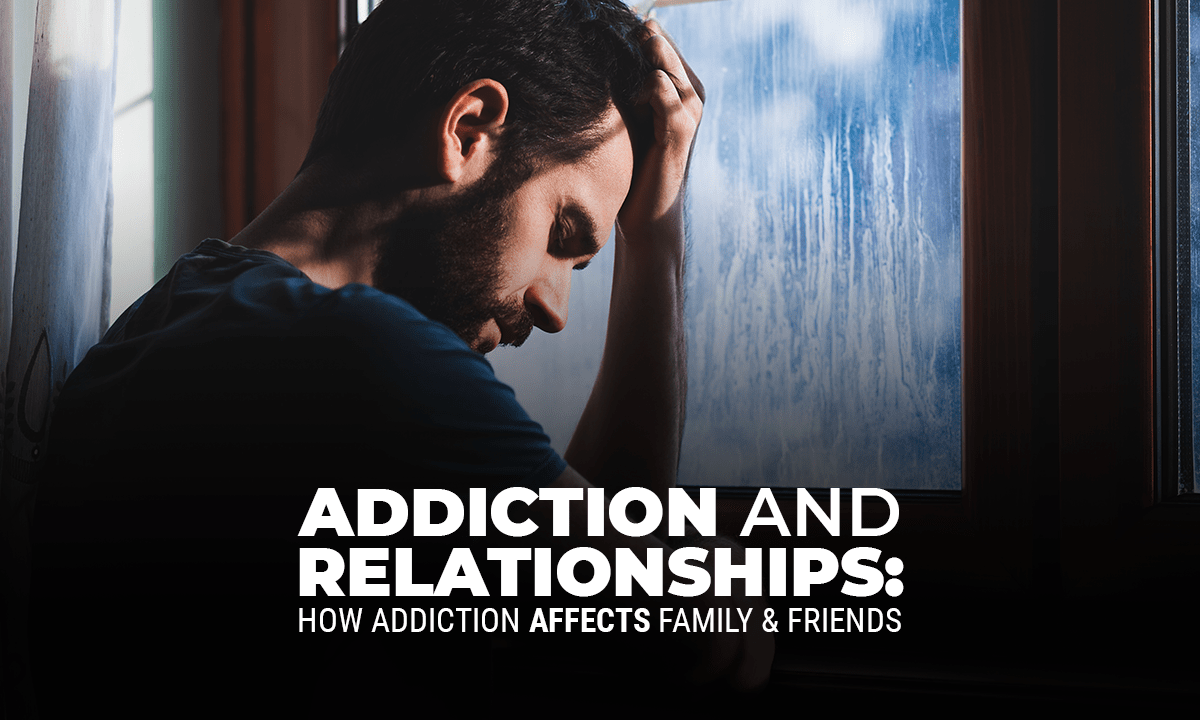

Addiction is a chronic disease that affects more than just the person who has it. It takes a toll on relationships and leads to conflict. It’s a family disease that interferes with basic life and important responsibilities and routines. Those suffering from addiction may find that substances become the main priority in their life, which often overrides their other emotions such as love and happiness. It becomes an obsession in which they would do anything to feed the addiction. Those who knew the person before they started using substances may feel that their personality has become unrecognizable.
Couples, families, and friendships that face addiction can all fall into disrepair as the sufferer begins to distance themselves. Conflict, abuse, and distrust are all side-effects of addiction in relationships and can do irreparable damage. Since substances are often used as an escape, fighting about substance misuse can push someone into a downward spiral of addiction. This creates a vicious cycle in which conflict leads to using, and drinking leads to conflict. Spirals like these can be challenging to escape without treatment.
There’s a common misconception that addiction begins with partying, but in reality, it starts with control. Addictions give people a sense of control over their lives. Stress, mental illness, trauma, abuse, and emotional discomfort can all instigate addictive behaviors. Drinking and doing drugs have predictable and familiar effects, which allow people to escape emotional turmoil in their lives. Someone might need help with an addiction if they:
It’s important to be aware of these red flags if they come up in your relationships. Knowing what they mean can help you best determine what you can do to help them get better.
Deception is the cornerstone of addiction, and individuals suffering from addictions can seriously hurt their relationships by keeping their daily life secret. As misuse turns into addiction, the small lies become bigger and harder to hide. Before they realize it, little white lies can spiral into bigger deceptions to manipulate loved ones and hide their double life. Lying is symptomatic of a crippling fear of judgment, and when confronted, those struggling may isolate and distance themselves from people to prevent feeling shame and guilt. They hide from their loved ones, which ultimately only exacerbates the cycle. Look out for lies about:
Deception about addiction can result in a loss of trust amongst family members, friends, or partners, sometimes damaging relationships for years to come. As addiction persists, the lies become more elaborate, leading from excuse to excuse. Trust is essential to maintain a healthy relationship and once broken, it can destroy relationships from the inside. Honesty is the only path toward effective communication and without trust, suffering relationships can foster sadness and resentment on all sides. Loved ones fall second to drugs and alcohol, which makes it challenging to preserve respect and loyalty without intervention.
Those struggling with addiction may find that they have displaced anger and resentment towards themselves or others that can fester and cause them to explode in violence. Aggressive and volatile behavior are early red flags that can lead to violent outbursts, fights, and abuse. While there is a severe risk of the sober partner becoming a victim, the person with the addiction can also be the one facing abuse. Partners or family members can resent the addicted person for having their disease and not getting help, sometimes acting out in violence. Not all abuse is physical, though. The U.S. Department of Justice defines abuse as any behavior when a partner exerts their dominance and force over an unwilling partner. Some examples of non-physical abuse that may be present in a relationship struggling with addiction:
Codependency and relationships with an addicted love one often go hand-in-hand. Codependency and addiction breed toxic, one-sided relationships between friends, families, and partners. The codependent party in a relationship wants to help the addicted individual, but their codependence is doing the opposite by enabling unhealthy behavior. Codependent relationships usually require one of the partners to need more help than the other. Someone codependent on someone struggling with addiction often enjoys the constant feeling of being needed, as if they are a caretaker. The feeling of sacrificing their own self-care and boundaries for someone else gives the codependent a motive to maintain the addiction for their own personal gain.
The best and most effective way to overcome addiction is through treatment. There are many forms of treatment available, from individual counseling and group counseling to support groups and rehabilitation. If you, your friend, or a loved one is struggling with addiction, supporting them on a path to treatment is the best thing you can do. At Oregon Trail Recovery we provide an ethical treatment experience for those struggling with addiction. Our 6-month intensive outpatient program offers long-term recovery in a comfortable and clinically sound environment. Join our supportive community as we help individuals learn to cope with normal daily stressors without falling into old habits. We offer accessible and affordable treatment complete with individual and group counseling sessions. OTR will be the last treatment experience that you or a loved one will have to go through.
Save your relationships at OTR. If you're concerned about a loved one, talk with us today.